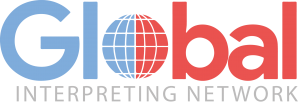
Top 4 Tips For Successful Over The Phone Interpreting Services
If you are considering using an over-the-phone interpreter to translate for you at a business meeting, here are some tips to prepare you. Before hiring an interpreter, ensure the setting is free of background noise. If possible, ask others to keep the room quiet for the interpreter. You should also inform the interpreter how many people will be in the room and whether or not you will be using a speakerphone. It is a good idea to introduce everyone in the room and include their names, as this will come up later in the conversation.






